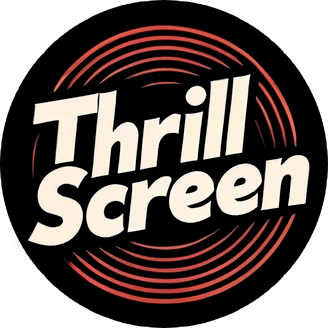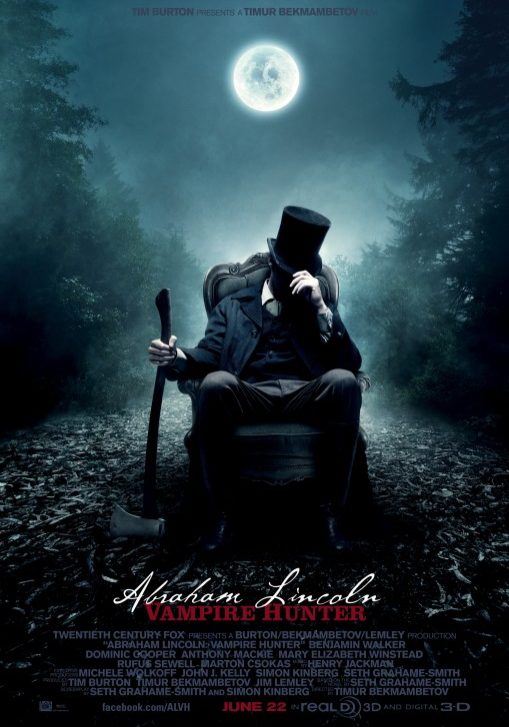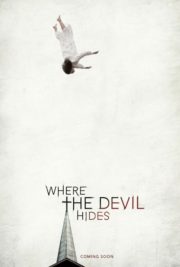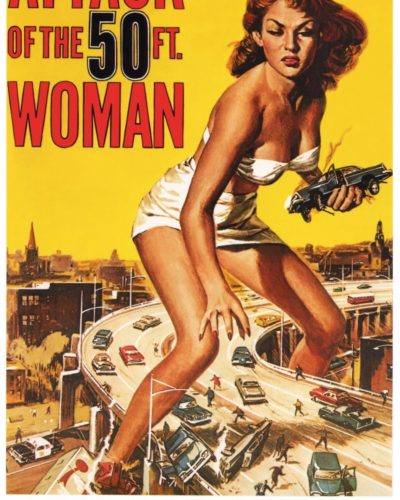“By the Power of Truth, I, While Living, Have Conquered the Universe” – Chasing Vampires with an Axe and a Top Hat
The President’s Secret Battle: A Synopsis
“Abraham Lincoln: Vampire Hunter,” envisioned through the cinematic lens of director Timur Bekmambetov and released upon unsuspecting audiences in 2012, offers a macabre revisionist take on American history. This film imagines the 16th President of the United States not simply as the Great Emancipator, but also as a skilled hunter of the undead. Based on the 2010 novel by Seth Grahame-Smith, who also penned the screenplay, this narrative weaves a dark and fictional second life into Abraham Lincoln’s biography, revealing his lifelong crusade to vanquish bloodthirsty creatures preying upon the nation. With each swing of his trusty axe, the film leads viewers through a version of Lincoln’s life that, while devoid of authenticity, is brimming with fantastical horror.
A Nightmarish Revision of Americana: Setting the Scene
Casting Shadows – The Atmosphere and Tone of Terror
The magic of “Abraham Lincoln: Vampire Hunter” lies in its ability to meld historical gravitas with the gothic allure of vampire lore. The horror atmosphere is not as much achieved through traditional suspense or foreboding, but rather through the striking juxtaposition of the known and the fantastical. Bekmambetov utilizes the vast, brooding landscapes of the 19th century, from plantations bathed in moonlight to smoky, cobblestone streets shrouded in mist, to instill a chilling backdrop against which Lincoln’s secret war unfolds.
Through the Vampire’s Eyes: Cinematography and Visuals
The sheer audacity of the film’s visual storytelling is undeniable. Matthew Libatique’s cinematography employs an array of techniques, from stylized slow-motion sequences to POV shots that almost allow viewers to glimpse through the vampiric gaze. The visual palette shifts between the sepia tones of old daguerreotypes and the richer, blood-soaked reds of vampire feasts. Special effects are bold and decidedly flamboyant, walking a knife’s edge between believability and outright fantasy.
Sound is an omnipresent and commanding character in this haunting symphony. The score, with its stirring orchestral movements, underpins the film’s grandiose and perilous scenes, while sound effects evoke the visceral horror of the vampiric existence. Moments of silence, rare as they are, serve to heighten the tension before the inevitable storm of action that follows.
Giving Life to the Undead: Acting and Performances
Amidst the film’s grand theatrics, the characters are tasked with lending a soul to the spectacle. Benjamin Walker’s portrayal of Lincoln imbues the historical figure with a compelling air of gravitas and determination, underscored by a growing weariness as his dual lives weigh upon him. The supporting cast, including Mary Elizabeth Winstead as Mary Todd Lincoln and Dominic Cooper as Lincoln’s mentor in vampire slaying, contribute with performances that manage to strike a balance between the absurdity of the premise and the mandate for dramatic sincerity.
Fangs and Philosophy: The Horror Genre Through the Prism of America’s Past
Monstrous Metaphors: Subgenre and Symbolism
As a horror film, “Abraham Lincoln: Vampire Hunter” steps beyond the traditional confines of vampire narratives to touch upon historical horror. The vampires are not only predators of the night but are also entwined with the actual socio-political issues of their era, notably slavery, adding a layer of allegory to the narrative. The fusion of action and horror results in a collage of set-pieces that take cues from the supernatural while grounding dread in the very human capacity for cruelty.
The filmmakers employ a range of fright tactics that oscillate between gory battles and startling jump scares. These are executed with a flair that occasionally sacrifices the dreadful build-up for the adrenaline rush of confrontation. However, the film excels in its more evocative horror instances, where the threat of vampirism becomes a pervasive dread that courses through the epoch’s veins.
A Remark to the Republic: Themes Delivered with a Bite
The heart of the film’s societal commentary beats around the corruptive nature of power and the exploitation of the vulnerable, resonating through the allegorical representation of vampires. In linking these creatures to the historical atrocity of slavery, the screenplay invites viewers to delve deeper, pondering whether the true horror lies in the monster or the monstrous acts of mankind.
Axe-wielding Presidents and Blood-Soaked Dreams: Our Final Verdict
An Esoteric Foray into Fear: Horror Fans and Historical Thrillseekers Unite
“Abraham Lincoln: Vampire Hunter” might not stand as the paragon of horror, but its gutsy narrative and cinematic flare render it a spectacle worth witnessing. It will likely enthrall those who have an appetite for the offbeat and a tolerance for revisionist antics. Horror purists might balk at its liberal blend of genre and historical drama, but for viewers with a penchant for action-horror hybrids and a taste for peculiar narratives, this film will deliver.
The film invites comparisons with works like “Pride and Prejudice and Zombies” for its literary mash-up nature and “Van Helsing” for its monster-hunting thrills but maintains a unique place in the genre for its iconoclastic portrayal of an American president.
Cut, but Not Quite A Cut Above: The Final Word
While “Abraham Lincoln: Vampire Hunter” may not be lauded for its historical accuracy or profound horror, it’s an innovative and unabashedly entertaining ride. The director’s vision for a terror-tinged Lincoln provides moments of genuine thrills, though occasionally diluted by the film’s liberal use of CGI and a propulsive, action-centric pace. Its appeal might vary across the spectrum of horror enthusiasts and those seeking either dread-inspiring terror or heavy-handed satire may walk away unsatisfied.
Viewer discretion is advised due to graphic violence and some gruesome visuals that are not for the faint of heart. Ultimately, the film stands as an intriguing, albeit flawed, entry in the horror genre; it’s a romp through a nightmarish American fantasy that will engage your imagination and might just have you pondering, as Lincoln himself states, the “power of truth.”




